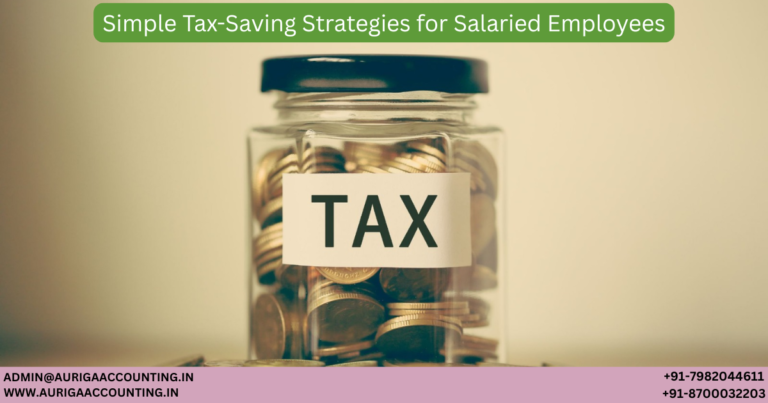
WHICH TAX FORM DO I USE TO FILE INCOME TAX?
Introduction
ToggleWHICH TAX FORM DO I USE TO FILE INCOME TAX?
Introduction: Why Choosing the Right Tax Form Matters
The Importance of Accurate Tax Form Selection: Selecting the correct income tax form is vital because it determines how you report your income, deductions, and credits. Filing the wrong form can result in inaccuracies, delays, and potential legal consequences. Therefore, understanding the factors that influence your tax form choice is crucial.
Common U.S. Income Tax Forms: In the United States, several tax forms are available to accommodate various income sources, deductions, and filing statuses. The most commonly used forms include Form 1040, Form 1040A, and Form 1040EZ for individual taxpayers, while businesses use forms like Form 1065 and Form 1120. Each of these forms is designed to serve specific purposes and taxpayer categories.Visitofficialwebsite
Step-by-Step Guide to Choosing the Correct Tax Form
Step 1: Determine Your Filing Status: Your filing status, such as Single, Married Filing Jointly, Married Filing Separately, Head of Household, or Qualifying Widow(er), is the initial factor that influences your tax form choice. The IRS provides guidelines for determining your appropriuate filing status.
Step 2: Identify Your Income Sources: The sources of your income, such as wages, self-employment income, rental income, investment income, and business income, play a significant role in selecting the right form. Different forms cater to different income categories.
Step 3: Eligibility for Special Tax Situations: Consider any special tax situations, such as being a non-resident alien, having significant capital gains or losses, or running a small business. These circumstances may necessitate the use of specific forms or additional schedules.
Step 4: Review Available Tax Forms: Familiarize yourself with the available IRS tax forms. The most common individual tax forms include Form 1040, Form 1040A, and Form 1040EZ. Each has its own eligibility criteria and complexity levels.
Step 5: Compare and Select the Appropriate Form: After considering your filing status, income sources, and any special circumstances, compare the available tax forms to identify the one that best aligns with your financial situation.
Step 6: Download or Request the Chosen Form: Once you’ve determined the correct tax form, you can download it from the IRS website or request a copy by mail. Be sure to use the form specific to the tax year you are filing for.
Commonly Used U.S. Income Tax Forms
Form 1040: Form 1040 is the most comprehensive individual tax form. It is used by taxpayers with various income sources and deductions, including self-employment income, rental income, itemized deductions, and tax credits.
Form 1040A: Form 1040A is a simplified version of Form 1040, suitable for individuals with relatively straightforward financial situations. It allows for some deductions but not itemized deductions.
Form 1040EZ: Form 1040EZ is the simplest form and is designed for taxpayers with very basic financial situations. It is often used by individuals with only wage income and no significant deductions or credits.
Form 1040NR: Form 1040NR is for non-resident aliens or foreign nationals who have U.S. income and are not eligible to use Form 1040.
Form 1065: Form 1065 is used by partnerships to report income, deductions, and credits, with each partner’s share of income and losses provided on Schedule K-1.
Form 1120: Form 1120 is the U.S. Corporation Income Tax Return form. It is used by businesses, including C corporations, to report income, deductions, and tax liability.
What is the difference between income tax and income tax return
Income Tax
Income tax is a tax that is levied on the income that individuals and businesses earn in Pakistan. The tax is administered by the Federal Board of Revenue (FBR).
The income tax rates in Pakistan are progressive, which means that the higher your income, the higher the percentage of tax you will pay. The current income tax rates in Pakistan are as follows:
- Basic exemption: The first Rs. 600,000 of your income is exempt from tax.
- Marginal rates: The tax rate on your income above Rs. 600,000 is as follows:Up to Rs. 1.2 million: 2.5%Up to Rs. 2.4 million: 12.5%Above Rs. 2.4 million: 35%
Income Tax Return
An income tax return is a document that is filed with the FBR to report your income and expenses for a given tax year. The return is used to calculate the amount of income tax that you owe, and it may also be used to claim tax deductions and credits.
The income tax return filing deadline in Pakistan is 30th June of the following year. However, if you are required to pay advance income tax, you must file your return by 30th September of the current year.
The FBR has made it easy to file your income tax return online. You can file your return through the FBR’s website or through the FBR’s mobile app.
Why are there different taxes for income and capital gain
Firsty, the lower tax rates are for long term capital gains, meaning gains on the sale of assets held for longer than 12 months. Short term gains are taxed at the same rate as “ordinary” income like salaries.
Congress wanted to encourage people to invest long-term, rather than speculate like gamblers are casinos at casinos looking to make fast bucks. Long term investment humus considered by economists as beneficial to the growth of the economy, so lower tax rates were intended to a help grow the country. Of course that does not necessarily happen and many people make money by speculating for as little as a year plus one day without benefiting anyone but themselves. By the way, it is only the federal government that has taken this approach. None of the states that have an income tax on capital fauns have a reduced rate of tax on long term capital gains.
Special Situations and Attachments
Schedule C: Profit or Loss from Business: If you operate a sole proprietorship, you may need to complete Schedule C to report your business income and expenses.
Schedule D: Capital Gains and Losses: If you have capital gains or losses from investments, you may need to complete Schedule D to report these transactions.
Schedule E: Supplemental Income and Loss: If you receive rental income, royalties, or income from partnerships, S corporations, or trusts, you may need to complete Schedule E to report these supplemental income sources.
Additional Schedules and Forms: Depending on your specific financial situation, you may need to attach other schedules and forms to your tax return to report income and deductions accurately.
Changing Your Tax Form Selection
Amending a Tax Return: If you discover that you filed the wrong tax form or made an error on your return, you can file an amended return using Form 1040X. This allows you to correct mistakes or change your tax form selection.
How can I choose and file ITR forms
following form is used whiling filing ITR which is as follow:
1. ITR 1 (SAHAJ) this FORM for the individual who are getting their income from salary or interest.
2. ITR 2 this FORM for the individual and Hindu Undivided Family (HUF) other words who has not having income from profession or business.
3. ITR 3 this FORM for the individual and Hindu Undivided Family (HUF) who are the PARTNER of any firm and this is eligible only for who are not getting income form any profession or sole proprietorship.
4. ITR 4S (SUGAM) this FORM is for the individual/HUF who are have having their income from presumptive business for example you having coaching center but your are not tutor and you are getting income from that center so this called business is presumptive business.
5. ITR 5 this FORM for the FIRM/LLP/AOP/BOI
6. ITR 6 this FORM for the companies other than companies claiming exemption under section 11.
7. ITR 7 this FORM using for individual/companies who are the under the section of 139 (4A, 4B, 4C, 4D)
What is ITR, and how is it beneficial to file it
ITR (Income Tax Return) is an essential document for anyone who needs a loan, as banks typically require the ITR of the previous three years before sanctioning a loan. However, few people know that ITR can be incredibly useful for accident victims.
For example, if a person dies in a car accident involving a truck, the truck’s insurance company will pay out a third-party claim to the family of the deceased.
Let’s say the deceased was earning Rs 500,000 and was aged 30.
In case of ITR is not filled, compensation will be calculated by taking a notional income figure of rs3000 per month.
So compensation will be 3000*12*1.5*14=Rs 756000
1.5 is growth and 14 is multiplied as per the Supreme Court judgement in the case of sarla Verma
Case detail :
In case ITR is filed, In this case, compensation will be calculated by taking a notional income figure of RS 500000as per ITR
So compensation will be 500000*1.5*14=Rs 1,05,00,000
So you can see the HUGE difference of Rs 9744000 .
Filling an ITR may cost only Rs 1,000, but not doing so could lead to a significant loss of financial support for your family in the future.
Why is filling ITR is important? Is there any effect if I file my ITR before coming budget
Why is Filing ITR is important?
1st it is mandatory to file Income Tax Return for an Individual if his/her income is higher then the basic exemption limit.
Even if your income is less then exemption limit, ITR can be filed voluntarily. Also in most states when you register your immovable property, your last 3 years ITR are required.
Also, if you want to apply for any kind of Loan or Credit Card it is insisted by the bank to provide last 3 year ITR. Thereby indirectly individuals have to file ITR voluntarily.
Also, on any of your income TDS has been deducted and your income is less then the basic exemption limit the filing ITR will be beneficial to get your TDS deducted refund.
If you have a business income then it is recommended to file your ITR even if total income is less than the basic exemption limit. It is beneficial mainly when you have business losses then the losses can be carried forward in the future years and ITR will be helpful for you get loan for your business.
Under the Income Tax Act, non-filing of returns can attract a penalty of Rs 5,000 (where filing ITR becomes mandatory)
Is there any effect if I file my ITR before coming budget?
No, the coming budget will not have effect on your current ITR.
Because current ITR is for the FY 2018–19 (1/4/2018 to 31/03/2019) where as the budget is for the FY 2019–20 (4/04/2019 to 31/03/2019).
But the coming budget will have an effect on FY 2019–20 ITR
Hope you got your answers. If you still have any questions let us know.
www.aurigaaccounting.in
Seeking Professional Assistance
When to Consult a Tax Professional: If you have a complex financial situation, significant investments, multiple sources of income, or if you’re uncertain about which tax form to use, it’s advisable to consult a tax professional. They can provide personalized guidance and ensure compliance with tax laws.
Benefits of Professional Advice: A tax professional can help you maximize deductions, credits, and savings while minimizing the risk of errors or audits. They can also assist in tax planning and keeping your financial affairs in order.
Conclusion of income tax
Choosing the right tax form is the foundation of a successful tax filing process. By following the step-by-step guide and considering your filing status, income sources, and special circumstances, you can ensure that you select the most appropriate form for your financial situation. Accurate form selection is essential for timely and compliant tax filing, enabling you to fulfill your tax obligations and take advantage of available deductions and credits. In cases of uncertainty or complexity, seeking professional advice can provide invaluable assistance in ensuring a smooth and error-free tax filing experience.
how auriga accounting help you to filing income tax
Auriga Accounting, as a professional accounting and tax service provider, can be instrumental in helping you file your income tax returns accurately and efficiently. Their expertise and services are designed to ensure that you meet your tax obligations while optimizing your financial situation. Here’s how Auriga Accounting can assist you in filing your income tax:
Tax Planning: Auriga Accounting professionals can provide tax planning services to help you minimize your tax liability legally. They will analyze your financial situation and recommend strategies to reduce your tax burden.
Record Keeping: Proper record keeping is essential for accurate tax filing. Auriga Accounting can help you organize and maintain your financial records, ensuring that you have all the necessary documents to support your tax return.
Income and Deduction Reporting: They will assist you in accurately reporting your income from various sources, including wages, investments, rental properties, and self-employment. They will also help you claim eligible deductions and exemptions.
Selecting the Appropriate Tax Form: Auriga Accounting will ensure that you select the correct tax form based on your financial situation, whether it’s Form 1040, 1040A, 1040EZ, or any other relevant form.
Filling Out the Tax Forms: Their experts will fill out the tax forms accurately, including schedules and attachments as needed, ensuring that all income, deductions, and credits are properly reported.
Tax Compliance: Auriga Accounting will ensure that your tax return is compliant with current tax laws, helping you avoid penalties and legal issues related to non-compliance.
E-Filing Assistance: They will guide you through the e-filing process, helping you set up your e-filing account, navigating the official tax portal, and submitting your return electronically.
Verification: Auriga Accounting can assist you in verifying your tax return, ensuring that it is completed accurately and securely. They will help you choose the most suitable verification method, such as an Aadhaar-based OTP or digital signature.
Timely Filing: Filing your tax return within the due dates is essential to avoid late filing penalties and interest on unpaid taxes. Auriga Accounting will ensure that your return is filed on time.
Review for Errors: Their professionals will review your tax return to identify and correct common errors that might lead to discrepancies or audit triggers.












